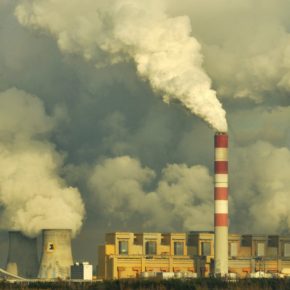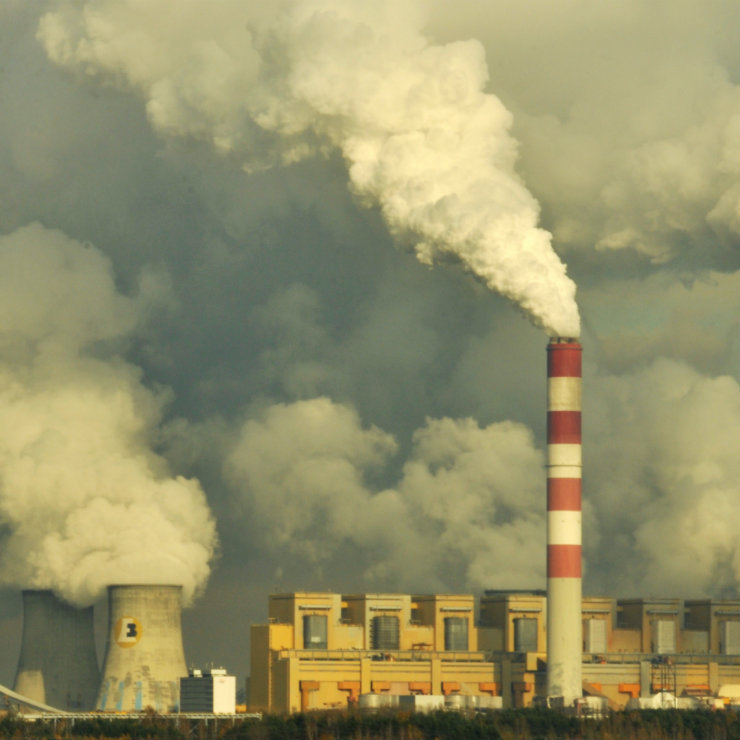Tydzień w gospodarce
Category: Trendy gospodarcze

Coal-based power plan, Bełchatów, Poland (Greenpeace Polska, CC BY-ND)
Everything starts with the emissions allowance prices under the European Union’s Emissions Trading System, i.e. an instrument that is supposed to push the energy industry in the EU towards low-emissions investments. Today, the price of allowances is around EUR16 per one ton of CO2 emissions, but in the near future it may become significantly higher.
“The increase in EU ETS prices even to the level of EUR30-40/t will impact the costs of electricity production in coal power plants substantially. For short-sighted observers, the competitiveness of alternative energy production technologies may not be evident today, when emission allowances still rate below EUR20/t,” predict the experts from WiseEuropa in the report entitled “The climate finance domino. Transition risks for the Polish financial sector”.
“However, a forward-looking analysis leads to the conclusion that even a combination of moderate increase in the EU ETS prices and decreasing costs of renewables should make new zero-emission projects significantly more competitive than coal baseload power plants. The same can be said with respect to the mid-merit gas plants that should reach cost parity with the new coal-based projects in the early or mid-2020s,” add the experts.
International banking groups are aware of these calculations and are increasingly prohibiting their Polish branches from providing loans for the modernization of coal infrastructure. They are concerned about the expected high costs in the future, after the new EU climate policy is accepted and the prices of emissions allowances are increased. The report even mentions the amount of 100 euro per ton before 2050. This is just an estimate, however, because the regulatory risk in this sector is huge.
“If climate risks (high CO2 prices, restrictive European climate regulations, binding international agreements following Paris, etc.) materialize, significant losses will have to be covered from banks’ own capital, having a negative impact on the broader economy via rapid deleveraging: decreased lending and loss of confidence within the whole banking sector,” wrote the authors of the report.
This, of course, relates to Polish banks, and is only the end point of a hypothetical scenario. At the beginning of that scenario, foreign banks withdraw from financing high-emissions assets, then the domestic banks fill the gap (as the balances of the energy companies alone will not be enough), and then the prices of CO2 emissions are increased and the European or global climate policies become more restrictive. Only when such a sequence of events comes true, will the non-performing loans for high-emission energy projects end up accounting for an increasingly large part of the portfolio in a relatively small number of state-controlled banks.
Because there are many conditions for this potential crisis to occur, there are also many ways to avoid it. The authors of the report recommend that the decision-makers should consider an increase in the share of renewable energy sources in the energy mix and should outline a long-term strategy that will reduce the costs of financing of new investments by removing regulatory uncertainty. Diversification of investment in the energy industry and a reduction of the exposure to carbon assets is desirable from the perspective of the domestic financial sector. The energy companies themselves should adopt a similar approach, and should first conduct so-called carbon stress tests, taking into account not only the changes in the prices of emission allowances, but also the necessity of achieving absolute emissions reduction targets.
WiseEuropa Institute is an independent think-tank based in Warsaw, Poland.

